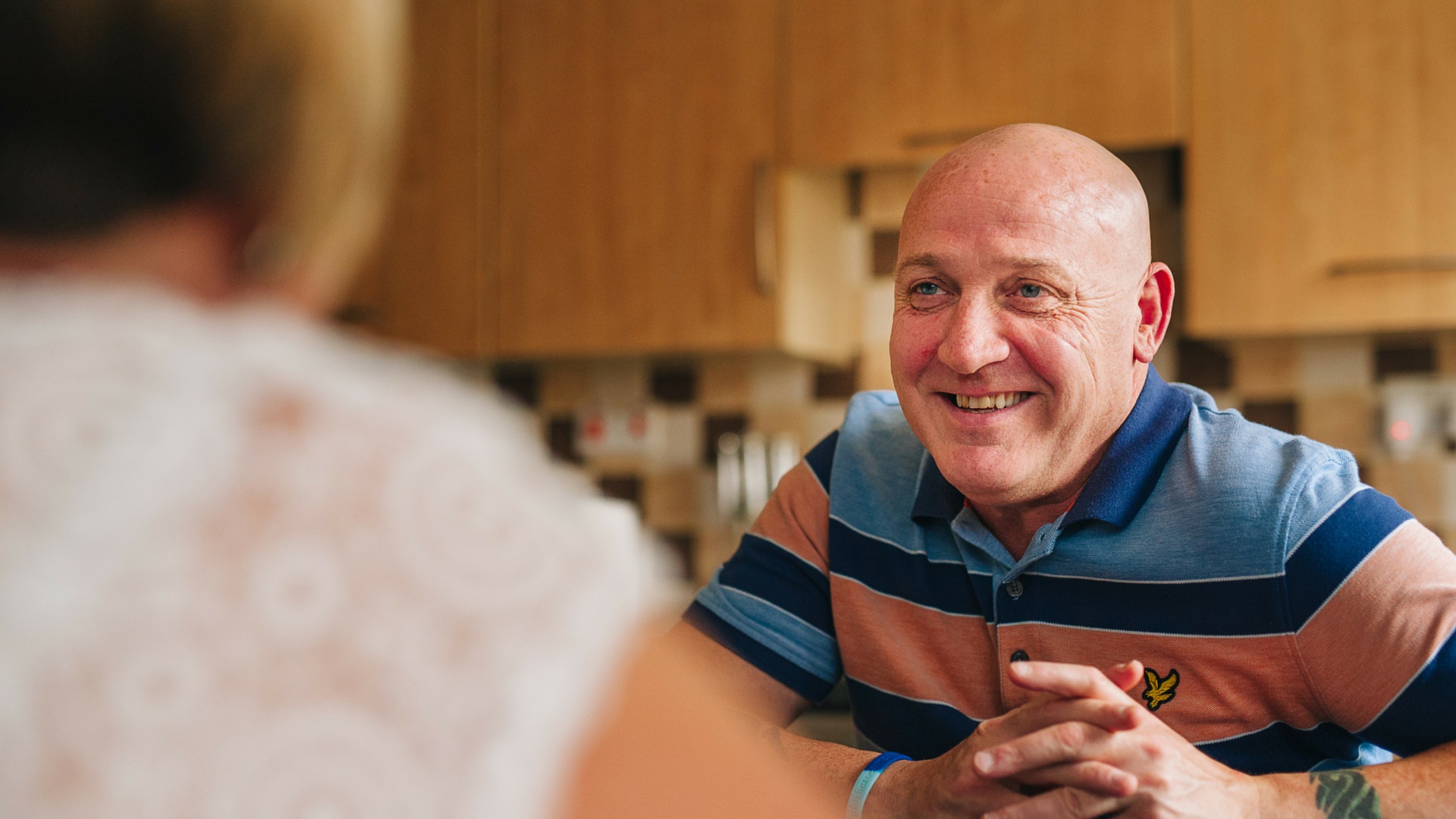18 July 2016
The benefits of coaching
In her last post, Luisa Hatcher, colleague coach for Bromford talked about the ideas behind the decision to move towards a coaching approach when…
The content in this article may now be out of date. Please try searching for a more recent version.
Luisa Hatcher has worked at Bromford for nearly 13 years, with 12 of them being in support. She started as a support worker before progressing to a senior support worker, and finally spending seven years as a service manager. Here she explains how changes to support provision in Bucks, meant that her service and team were transferred over to another provider leaving her with a choice.
Do I carry on in the role that I’d been used to (with a different employer) or do I take a leap of faith, stay put and take on a new challenge? At that point, there was no job title and no job description – just a vision of working in a very different way to what I’d always been used to.
We all need stability, and I wasn’t even sure where I’d been working, I had no idea what to expect. Not only would I be moving from support to the housing management side of the business (which felt like a completely different world), I didn’t have a clue what my job would be. But I decided to be brave and jump in head first.
Fast-forward
Well, here I am – ten months in and I now have a new job title (colleague coach) and clear vision of where we’re going as a business, and I can safely say I love my job! I’ve been working closely with our housing managers to introduce a coaching culture that is key to the relationship we want to have with our customers.
Historically as landlords we’ve been the enforcer. If you didn’t pay your rent, if your garden was a mess, or if you caused trouble, we would have to take action.
Our first thoughts weren’t necessarily to talk to our customers and find out why?
Over the last ten months we’ve started to see a real shift away from us ‘telling’ our customers what to do. We’re now spending more time with them, getting to know them by asking how they are and what’s important to them – basically, by taking an interest in them as people and not just seeing them as customers.
We’re learning that every interaction we have with our customers is so important. We’re challenging ourselves to ensure that we’re not just reading from a script and completing a ‘tick-box’ exercise; that we’re looking at people and their situations holistically.

We’ve found that honest conversations are crucial to making this approach work. With colleagues moving towards more of a coaching role, there were concerns that some people may find it difficult to switch between coaching and enforcing, with customers getting confused about our role. My opinion is that we need to give people credit for being able to work things out for themselves, and being open and honest from the start about what our aims and expectations are is key to achieving this.
This approach isn’t about us telling our customers what to do. It’s about us spending more time with them and coaching them, helping them explore what options are open to them. It’s about our customers being informed, allowing them to making their own decisions, to take ownership and have control over their lives. Explaining on day one that we want to work with them to help them achieve their goals, but also making it clear that there are rules around how to manage their tenancy and there are consequences if they continually fail to stick to those rules. By being straightforward from the outset, we’ve found that we get off on the right foot together. If we ask our customers how they want to work with us from day one, we set the tone of an equal relationship.
It’s not like we’re dealing with children. We need to ensure that the approach we take is not one where we’re acting like the parent and ‘telling’ people off or, on the other hand, nurturing and ‘doing’ things for our customers, where they ultimately become reliant on us.

We want an equal relationship with our customers.
The idea, and it’s working, is rather than pre-judge why someone hasn’t paid their rent or cleared their garden we simply ask them about it. But we don’t ask in a judgemental way. We say things like, “What do you want to change?” or “We’ve got some concerns…talk to us about what’s happening.” To have these conversations we need to build trust and be consistent with our approach to show that this is for real. The stronger our relationships become, the more our customers trust us which ultimately leads to them getting to where they want to be in life.
In a world of reduced funding for support, our aim is to coach people to become less reliant on us and other services. By listening, building rapport and treating people with the respect they deserve, our customers will be empowered to deal with any issues they come up against; and stronger individuals build stronger communities where everyone can contribute and help each other.
Ten months ago I was given a very straightforward brief.
“We want an equal relationship with our customers.”
We’ve still got a way to go but by taking an interest in our customers, asking them questions about their lives, building trust and having open and honest conversations we’re definitely on the right track to achieving that goal.

18 July 2016
In her last post, Luisa Hatcher, colleague coach for Bromford talked about the ideas behind the decision to move towards a coaching approach when…
06 April 2016
The Lichfield hub has some amazing resources that you can use to help you get into work.